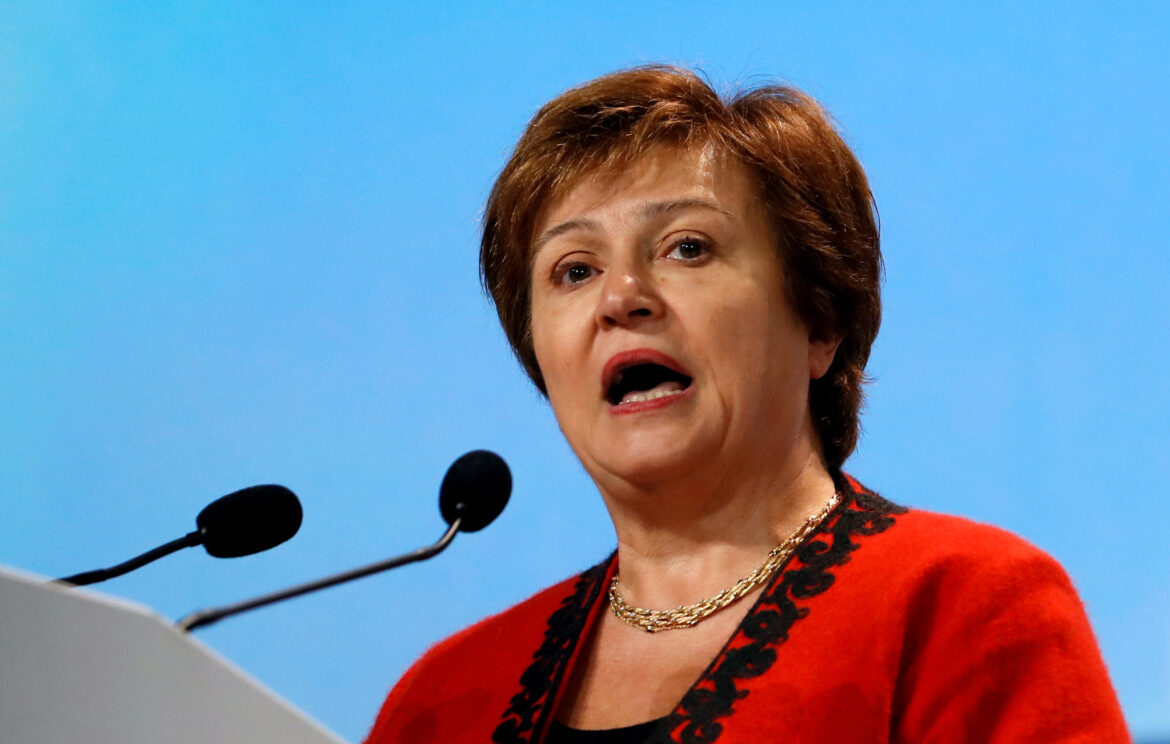By Asmau Ahmad
The International Monetary Fund (IMF) says urgent action is needed to accelerate vaccinations to cover at least 60 per cent of population in every country by 2022.
IMF Managing Director, Kristalina Georgieva, said this at the closing of the meeting of the G20 Finance Ministers and Central Bank Governors in Venice, Italy.
In a statement posted on the IMF website, Georgieva said urgent action is needed to vaccinate at least 40 per cent of the population in every country by the end of 2021 and 60 per cent by the middle of 2022.
According to her, the World Bank, the World Health Organisation (WHO), World Trade Organisation (WTO) and IMF, in close collaboration with ACT-A, has formed a task force – a ‘war room,’ to help achieve this goal.
“I very much welcome the G20 support to prioritise acceleration of the delivery of vaccines, diagnostics and therapeutics. By providing faster access to vaccines to high-risk populations, more than half a million lives could be saved this year.
“And a normal return to activity everywhere could add US$ 9 trillion to the global economy through 2025,” She said.
According to her, the global economy recovery continues, broadly in line with IMF’s April projection of 6 per cent global growth in 2021.
“Yet the divergence across economies is intensifying. Essentially, the world is facing a two-track recovery.
“In major advanced economies and some emerging market countries, growth is accelerating, particularly the poorest without access to vaccines and with surging infection rates – growth is suppressed.
“With a dangerous wave of a highly transmissible variant now making its way across the globe, the pandemic remains the fundamental risk facing the world.”
The IMF managing director said implementing sound macroeconomic policies could continue to play a pivotal role in securing the global recovery, in addition to accelerating vaccinations.
She said fiscal policy should provide well-designed support, tailored to country circumstances, to protect the most vulnerable and minimise scarring.
According to her, the IMF’s new SDR allocation of US$650 billion will increase countries’ reserves, create additional space for vaccine financing, and boost confidence in the recovery.
“To magnify the impact of the allocation, we will move quickly to explore options for economically stronger members to voluntarily use their SDRs to help poor and vulnerable countries.
“Scaling up IMF’s Poverty Reduction and Growth Trust (PRGT) is a tried-and-tested option that will enable us to provide zero-interest financial support to low-income countries through the medium term.
“We are also exploring the possibility of creating a new Resilience and Sustainability Trust for vulnerable members to build forward better, including through financing for greener, more resilient and sustainable growth over the medium term,” she added.
Georgieva, therefore, appreciated support for these measures expressed by the G20 at its meeting and the support for efforts to help countries facing unsustainable debt burdens.
She also recognised the G20’s support for the historic agreement on a minimum corporate tax rate.
“This will help countries preserve their corporate tax base and mobilize revenue by ensuring that highly profitable companies pay their fair share everywhere.
“I want to commend the G20 for the focus on climate risks and role of carbon pricing mechanisms.
“I also wish to express my profound appreciation for the G20 and our membership’s support for a new Special Drawing Right (SDR) allocation of $650 billion, the largest in IMF history and a shot in the arm for the world,” Georgieva said.




